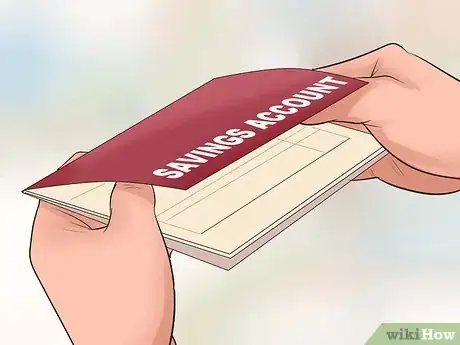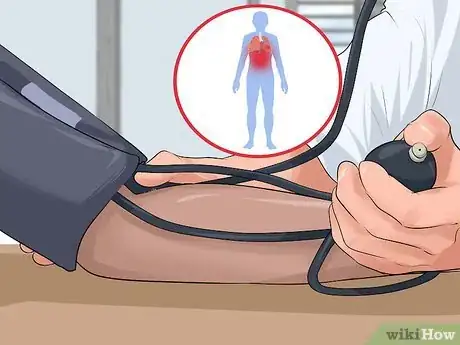This article was co-authored by Tracey Rogers, MA. Tracey L. Rogers is a Certified Life Coach and Professional Astrologer based in Philadelphia. Tracey has over 10 years of life coaching and astrology experience. Her work has been featured on nationally syndicated radio, as well as online platforms such as Oprah.com. She is certified as a Coach by the Life Purpose Institute, and she has an MA in International Education from George Washington University.
This article has been viewed 61,249 times.
Sometimes life seems to be hitting you from all sides. Financial worries, relationship concerns, work conflict, etc. are just some of the things that can make you feel your life is out of control. With determination and a plan, however, you can get a grip on your life and keep it from spinning out of control again.
Steps
Figuring Out What’s Going On
-
1Determine what is making you feel out of control. Take a moment to figure exactly what is causing you to feel as though you can’t get a grip on life. More than likely it is more than one thing, and often it is a combination of things impacting each other. For example, your relationship is suffering because you are under-employed at an awful job and argue about paying bills.[1]
- Make a list of everything that is going on in your life right now. Think about all aspects of your life including your finances, job, school, relationships, social life, self-perception, etc.
- Making a list of what is overwhelming you can help you begin to get a grip on life. It can help you see that your problems are finite – there are only so many of them, not an unlimited number of problems.
- Writing down what’s going on can help you prioritize and bring some of your issues into perspective.[2]
-
2Assess your finances. Are you able to meet all of your financial obligations? Are you heavily in debt and sinking further every day? Financial concerns are one of the key reasons people feel that they don’t have control over their life.
- Lack of financial security can impact other areas of your life. Money problems can create great stress , tension, and despair which leave you ill-tempered, overly-sensitive, and generally off-balance.
- What is the reason for your financial instability? Irresponsible spending? Lack of or not enough income? An unexpected situation? Figuring out why you are having financial problems can help you determine how to solve them.
Advertisement -
3Examine your job/school satisfaction. School and work represent a large part of life, and problems in this area can have a major impact on your life overall. Think about your relationships in this setting, as well as your responsibilities and obligations.[3]
- Are your difficulties because of something temporary (a report due soon) or something more long-term (is there someone there that bothers you every day)?
- Consider whether you have put too much on your plate.[4] Is your workload too heavy? Have you been assigned or volunteered for too many projects?
-
4Look at your relationships.Sometimes the dynamics of our personal relationships can throw us off balance and cause us to feel out of control. Relationships (family, romantic, or just friendship) that are volatile or even just out of sync can leave you emotionally tense. This can make you feel like you don’t have a grip on your life.
- Are there current circumstances or unresolved issues that are causing turmoil in your relationship?
- Is your relationship abusive? Any form of abuse (physical, sexual, emotional, or mental) can disrupt every aspect of your life. Seek help from someone you trust or the proper authorities as soon as you possibly can.
-
5Explore yourself. Examine whether things within you are causing chaos in your life. Issues such as physical health, mental health, as well as our attitude and perception can cause us to feel out of control.[5]
- Are you having health issues? Whether they are physical, mental, or emotional, health issues can easily make you feel as though you don’t have a grip on life. Issues such as depression, chronic pain, grief, and more can color the way we view the world around us and make us feel like we don’t have a firm grip on life.
- Do you have issues with substance abuse or addiction? Be honest with yourself about your addiction and its impact on your life. Often addictions (drug, alcohol, gambling, sex, etc.) can lead to decisions and behaviors that make life chaotic or make it feel like life is out of control.
-
6Think about how each area of your life impacts the other areas. Draw lines or arrows between each area to show the connections it has with other areas. Making a visual representation of how the parts of your life interact can help you figure out where the most change needs to occur.
- For example, if your workload is causing you to neglect your family relationships, you would draw an arrow from ‘work’ to ‘family’ to represent this relationship. You might want to then think about how you can change your workload.
- Or, if your health issues are causing you to spend lots of money on medicine and causing you to miss work which results in a smaller paycheck, then you might draw one arrow from health to finances, another from health to work, and possibly one from work to finances.
Changing Your Perspective
-
1Make yourself a priority. Many people feel that they are losing a grip on their life because they have too many obligations to other people. They end up spread too thin, with little time to address their own physical, emotional, or mental needs. Change your perspective and take the time to take care of yourself.
- Time to do things you enjoy, take of your health and wellbeing, or just relax should be as important as your meetings, classes, and other obligations.
- You may need to eliminate some things from your life in order to get a grip.[6] If you are doing so much that you have little to no time for yourself, then consider trying to reduce your number of activities and responsibilities. Delegate as much as possible.
-
2Change your thinking. Instead of dreading tomorrow because of all that you have to do, look at it as an opportunity to get some things done and put other things behind you. Instead of feeling guilty because you took 30 minutes to meditate when you could have been doing something for someone else, feel good that you took the time to take care of yourself.
- Think good thoughts about yourself. Think about all the things that you accomplish and how much you deserve the small things you do for yourself. Remind yourself that can be in control of your life and that you are doing just that.
- Have a positive attitude. Try to see the good in every situation. Your attitude towards a situation can influence your approach to the situation. If you approach things with a positive attitude, they seem a bit less overwhelming.
- Think about both short-term goals and long-term goals. Instead of thinking about just what you need to do for the moment or day, change your perspective and start thinking about goals you want to achieve. Think about how your activities, roles, etc. fit with those goals.
-
3Reconsider your resources. Often when we will feel like we don’t have a grip on life, it’s because we aren’t using our resources, or are not using them effectively. Instead of thinking about everything as a burden, take the perspective that these things can help you get a grip.
- Use your support system. Don’t be afraid to reach out to supportive friends and family, support groups, counselors, and anyone else that will help you get a grip on your life. Talk to them, ask them for assistance, and accept their support when it is offered.[7]
- Remember that you are a resource as well. Draw on your own strengths, skills, talents, positive experiences, etc. to encourage and energize yourself.
- Don’t be afraid to go see a counselor or therapist to help you regain control. Share your thoughts with them and ask them for feedback and help in achieving your goals.[8]
Getting Organized
-
1Draft a plan to get control of your life. Once you have figured out which parts of your life you need to get a handle on, you can make a detailed plan for how to do just that.[9] Don’t try to change everything at once, it is much more realistic and practical to focus on the one or two areas causing you the greatest distress.
- Make your plan goal and action-oriented. Think about what you need and/or want to do to get your life under control. Consider the specific steps you will have to take to reach your goals.[10]
- Make your action steps detailed and concrete.[11] For example, instead of, “spend less money each month”, your goal might be “spend $100 less each month by taking my lunch to work every day”.
- Think about what constraints you have on your time, money, etc., as well as what resources you have. Plan to use your resources to overcome your constraints.
- Think about whether there are other areas that have the potential to get out of control. Go ahead and make a plan for how you will get a grip on these things before they overwhelm you.
-
2Make a budget. Get your financial life organized by making a budget. Because financial concerns can impact some many other areas of life, getting your money under control can go a long way in helping you to get a grip on life.
- Make your budget usable and useful. It doesn’t need to be a full-blown spreadsheet (although it can be if that suits you), it can be as simple as using an app on your phone to track your spending. Use the format that works best for you.
- Make your budget realistic. For example, if you know you can’t do without your daily latte, then include it in your budget and make small adjustments in other areas to compensate for it.
- Relate your budget to your short-term and long-term goals. When thinking about saving and spending, think about the goals you considered previously. Align your budget with those goals; spend money on things that help achieve those goals, and save money to help reach them.
-
3Manage your time wisely. Often when we feel our life is out of control, we feel as if we don’t have enough time to do everything that needs to get done. Examine how you spend your time and consider how you can use it better.
- Put your goal deadlines as well as other important dates on a calendar. If you are using an electronic calendar, make use of the ‘alarms’ and ‘reminders’ functions to keep yourself on track.
- Schedule in down time or quiet time for yourself each day. Even if it’s just a few minutes, dedicate time to yourself to simply relax and decompress. Include time in your schedule for activities you enjoy, as well, such as taking an art class, or attending a concert.
- Start using timers to set boundaries on your time. For example, when your friend calls in hysterics, set a timer for 15 minutes and let her rant and rave. When the timer goes off, gently tell her that you have to call her back a little later.
-
4Organize your physical space. As much, as possible, de-clutter and streamline your environment. It will be easier to work your plan and get a grip on your life if you get organized.[12]
- Have a dedicated space for things you frequently use. This way you will spend less time looking for them. Consider using hooks, baskets, drawers, etc. dedicated to certain things. For example, a key hook, a phone charger basket, a writing drawer.
- Store things you don’t use often. Make use of storage containers and organizers to cut down on the clutter around you. Take the time to organize and put away things you don’t use on a regular basis.
- Make use of walls to hang bulletin boards, calendars, etc. This frees up countertops and puts important notes and dates right at eye level.
Expert Q&A
-
QuestionHow do you get grip on your mind if you're dealing with a lot?
 Tracey Rogers, MATracey L. Rogers is a Certified Life Coach and Professional Astrologer based in Philadelphia. Tracey has over 10 years of life coaching and astrology experience. Her work has been featured on nationally syndicated radio, as well as online platforms such as Oprah.com. She is certified as a Coach by the Life Purpose Institute, and she has an MA in International Education from George Washington University.
Tracey Rogers, MATracey L. Rogers is a Certified Life Coach and Professional Astrologer based in Philadelphia. Tracey has over 10 years of life coaching and astrology experience. Her work has been featured on nationally syndicated radio, as well as online platforms such as Oprah.com. She is certified as a Coach by the Life Purpose Institute, and she has an MA in International Education from George Washington University.
Certified Life Coach The best thing you can do is ask for help. Reach out to your friends and family and tell them what you're going through. For many people, it's embarrassing to ask for help when you need it, but it actually takes a lot of courage and strength. The people that care about you will be more than willing to help you get the resources you need.
The best thing you can do is ask for help. Reach out to your friends and family and tell them what you're going through. For many people, it's embarrassing to ask for help when you need it, but it actually takes a lot of courage and strength. The people that care about you will be more than willing to help you get the resources you need.
References
- ↑ Tracey Rogers, MA. Certified Life Coach. Expert Interview. 6 January 2020.
- ↑ http://www.helpguide.org/articles/stress/stress-management.htm
- ↑ Tracey Rogers, MA. Certified Life Coach. Expert Interview. 6 January 2020.
- ↑ http://www.albany.edu/spatial/WebsiteFiles/TimeManagement/time-control/control-time-life.pdf
- ↑ http://www.helpguide.org/articles/stress/stress-management.htm
- ↑ http://www.albany.edu/spatial/WebsiteFiles/TimeManagement/time-control/control-time-life.pdf
- ↑ Tracey Rogers, MA. Certified Life Coach. Expert Interview. 6 January 2020.
- ↑ https://www.entrepreneur.com/article/246154
- ↑ http://www.essentiallifeskills.net/takecontrolofyourlife.html
- ↑ http://www.essentiallifeskills.net/takecontrolofyourlife.html
- ↑ https://simpleprogrammer.com/2015/08/31/how-to-gain-more-control-over-your-life/
- ↑ http://www.albany.edu/spatial/WebsiteFiles/TimeManagement/time-control/control-time-life.pdf
- ↑ http://www.helpguide.org/articles/stress/stress-management.htm









-Step-20.webp)





























































